Cognitive Development Building Vocabulary Worksheets for Ages 8-9
6 filtered results
-
From - To
Discover our engaging "Cognitive Development Building Vocabulary Worksheets" designed specifically for children ages 8-9. These worksheets are crafted to enhance vocabulary skills while promoting critical cognitive growth. Through fun and interactive activities, kids will expand their word knowledge, improve reading comprehension, and boost language abilities. Each worksheet encourages creative thinking and problem-solving, providing a comprehensive approach to learning. Perfect for home or classroom use, these resources not only make learning enjoyable but also support essential educational standards. Give your child the tools they need to succeed—explore our worksheets and watch their vocabulary skills flourish!
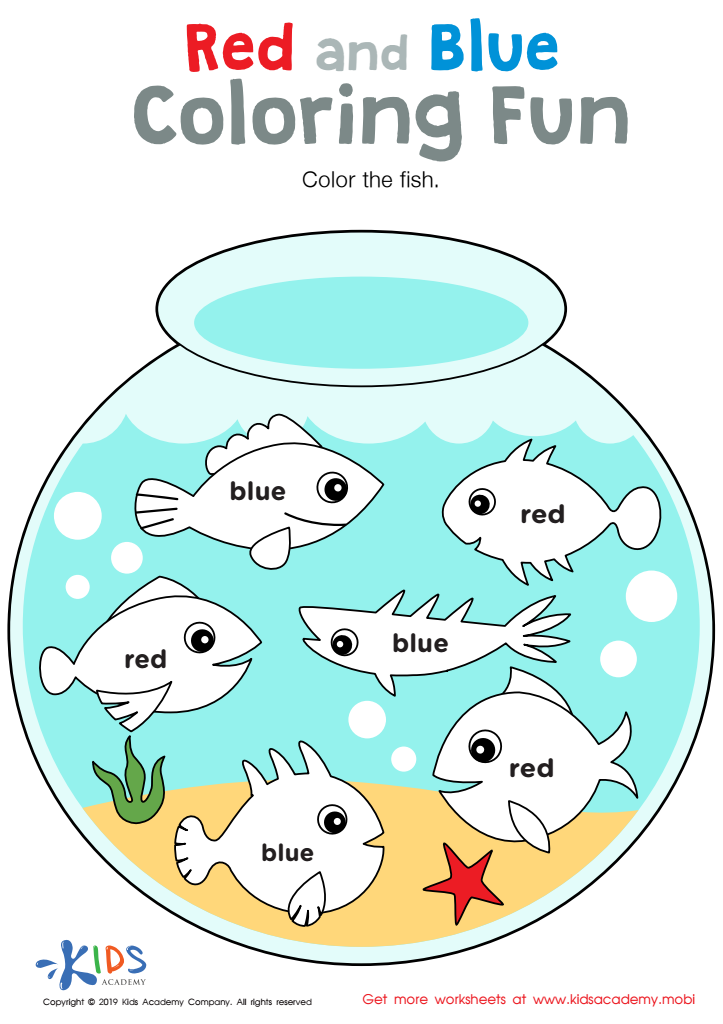

Red and Blue Coloring Fun Worksheet
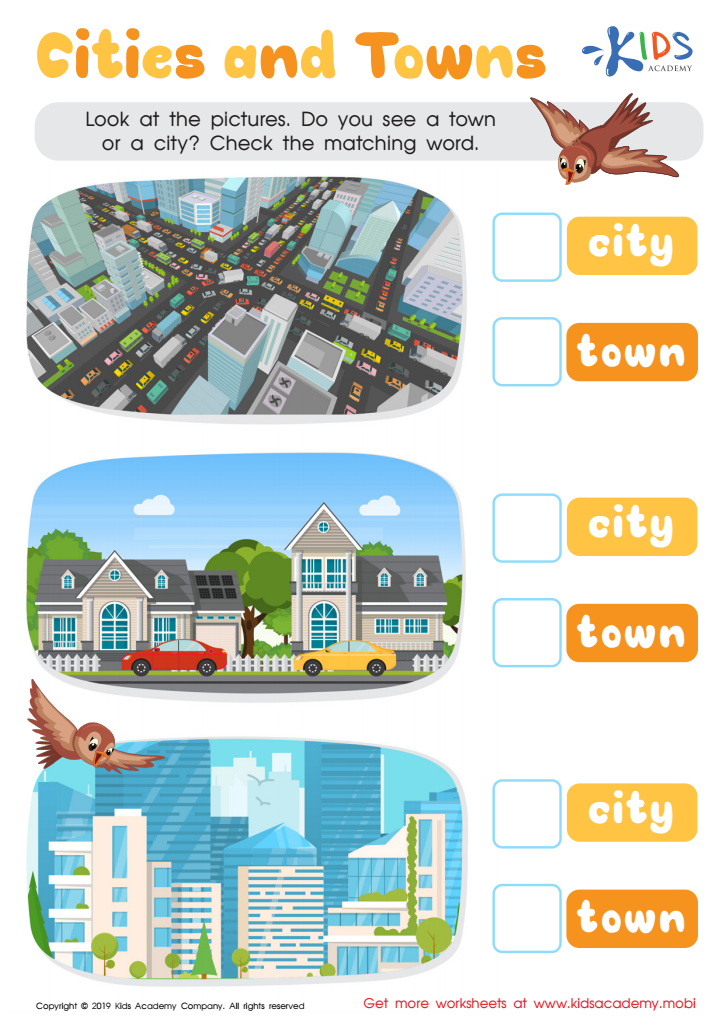

Cities and Towns Worksheet
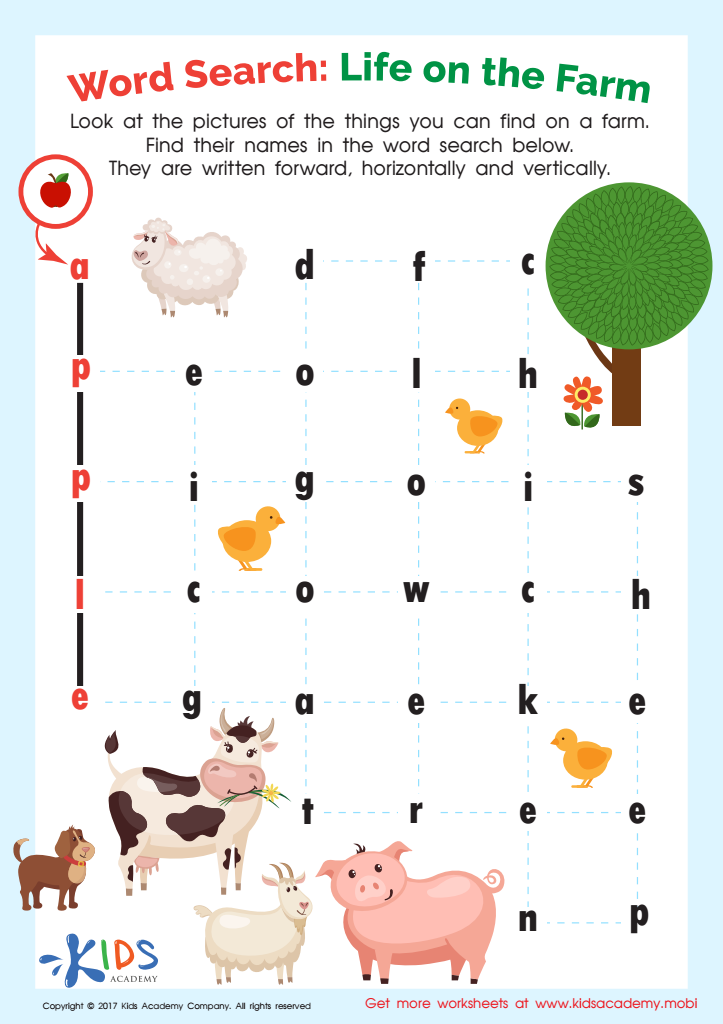

Word Search Puzzles Worksheet
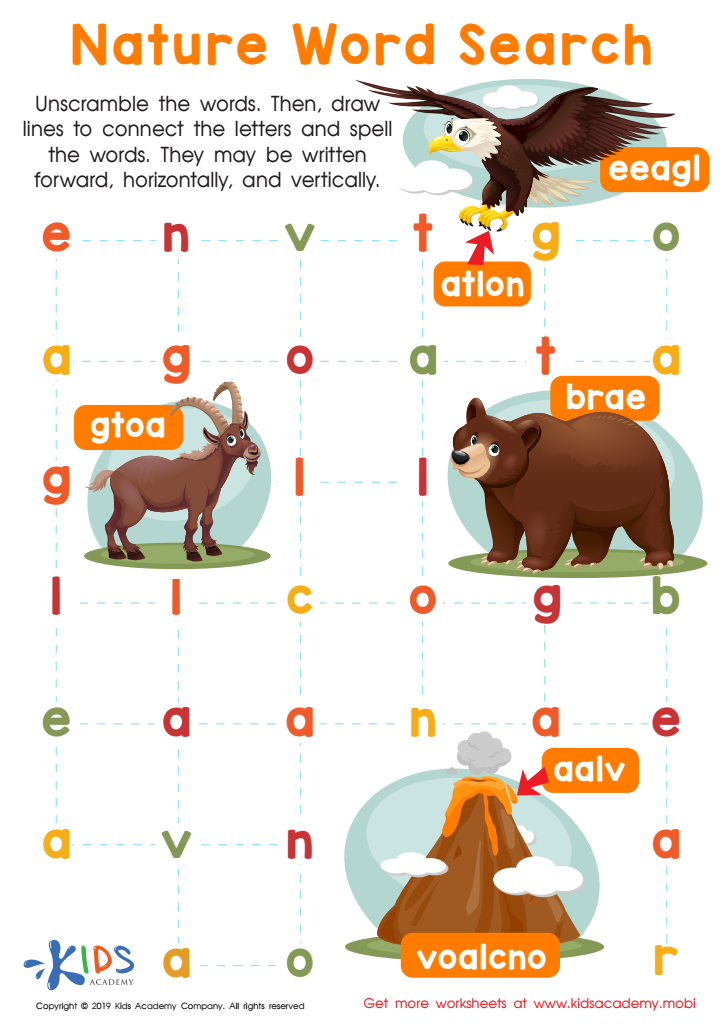

Nature Word Search Worksheet
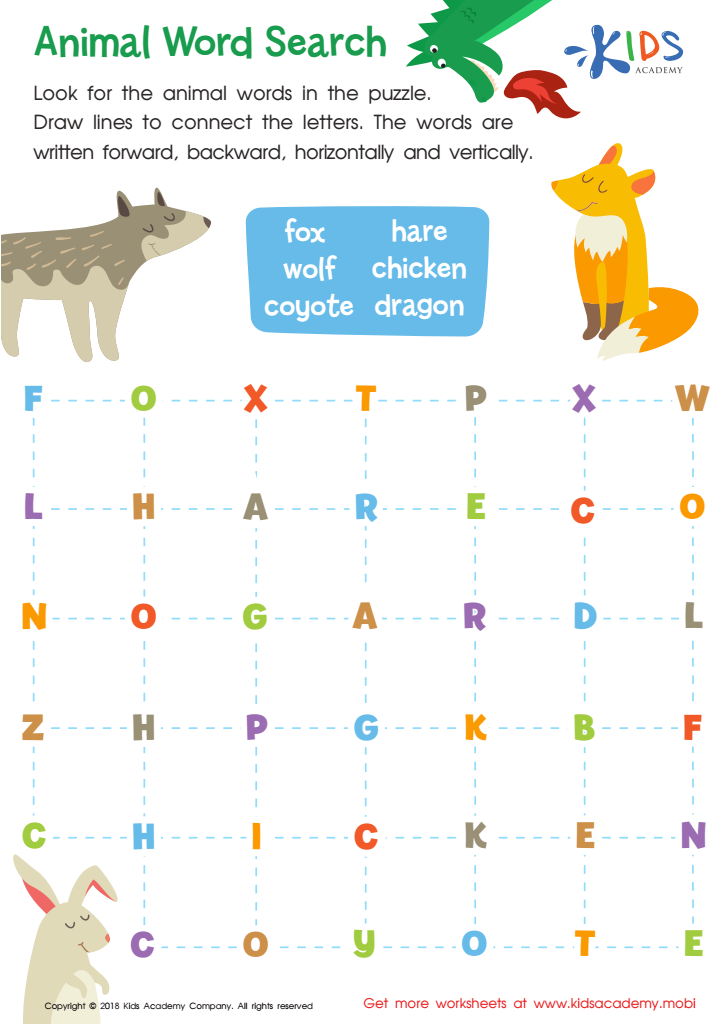

Animal Word Search Worksheet
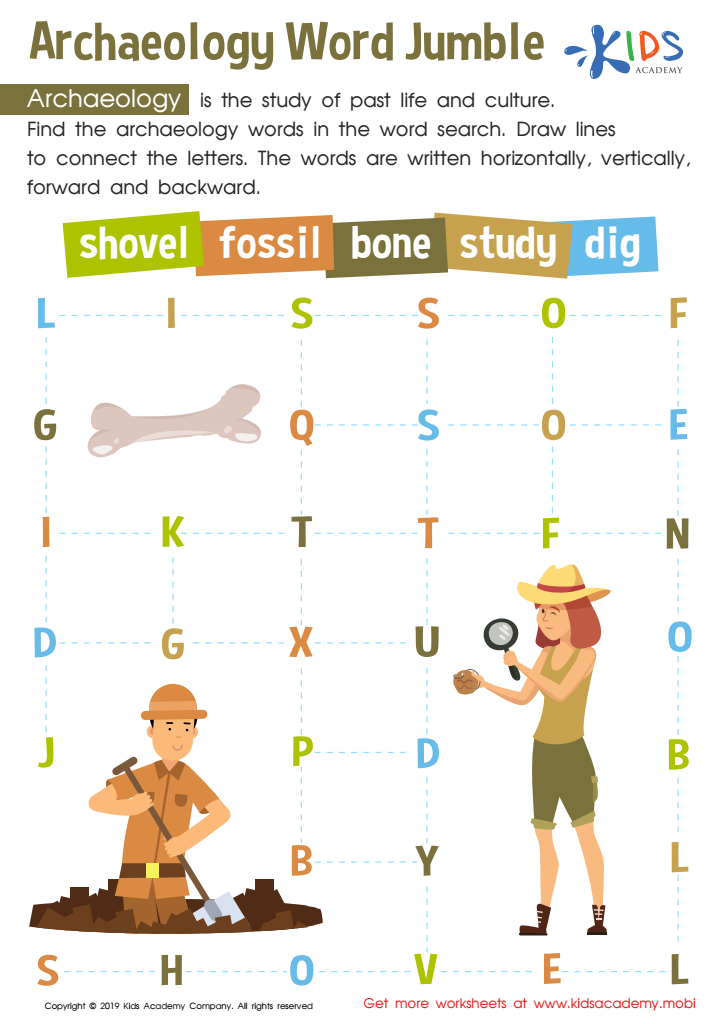

Archaeology Word Jumble Worksheet
Cognitive development, especially in the domain of vocabulary building for children aged 8-9, is crucial for academic success and overall communication skills. At this stage, children are developing higher-order thinking skills, critical for reading comprehension, problem-solving, and articulating ideas effectively. Parents and teachers should prioritize vocabulary development because a robust vocabulary enhances a child’s ability to express thoughts clearly and understand complex concepts in various subjects, from literature to science.
Moreover, vocabulary impacts social interactions. Children who can effectively communicate are better equipped to form friendships and navigate social dynamics, promoting emotional and social development. A rich vocabulary allows children to appreciate nuanced meanings in conversations, thus fostering empathy and understanding.
Additionally, in this digital age, where information is readily available, strong vocabulary skills equip children to interpret and analyze diverse texts critically. Engaging in activities that enrich vocabulary, such as reading, word games, and discussions, supports cognitive development and nurtures a love for learning.
In summary, by focusing on building vocabulary, parents and teachers play a vital role in shaping confident, articulate, and inquisitive learners prepared for future academic endeavors and social interactions. It’s an investment in a child’s holistic growth and lifelong learning journey.
 Assign to My Students
Assign to My Students






























